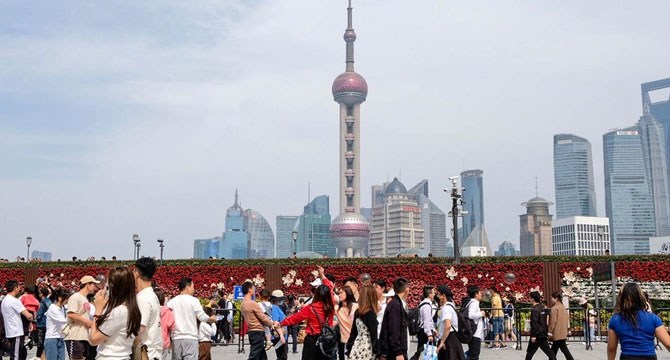BEIJING, July 13 (Xinhua) — China has accelerated efforts to comprehensively deepen reforms in its latest move by approving a wide range of proposals, including new systems for a higher-standard open economy, experts noted.
A meeting of the Central Commission for Comprehensively Deepening Reform (CCCDR) was held on Tuesday. During the meeting, it was stressed that efforts must be made to put in place new systems for a higher-standard open economy and to promote the gradual transition from dual control over the quantity and intensity of energy consumption to dual control over the quantity and intensity of carbon emissions.
Xiong Yuan, chief economist at Guosheng Securities, said in a research report jointly published with his colleague Zhu Hui on Wednesday that the CCCDR meeting mainly focused on reform, and its importance cannot be overstressed.
Xiong’s remarks are not unfounded given that the meeting on Tuesday highlighted the importance of institutional opening up and deepening institutional reform in investment, trade, finance, and innovation, among other key areas of foreign exchanges and cooperation, to actively raise China’s opening up to a new level.
The new systems for a higher-standard open economy are a strategic move that will proactively boost reform and development through opening up.
On April 21 this year, when the first meeting of the CCCDR was held, it was already made clear that this year marks the first year of the full implementation of the guiding principles of the 20th Communist Party of China National Congress.
Tuesday’s meeting is the second meeting of the CCCDR. Xiong said that the focuses of the second meeting are all critical areas of the current institutional reform, including new systems for a higher-standard open economy, rural reform, and power system reform.
The meeting agreed that while staying focused on the strategic target of realizing the modernization of agriculture and rural areas and building up its strength in agriculture, China should regard the handling of the relationship between farmers and land as its main task. And it should also work faster to shore up weak links in agricultural and rural development, so as to lay a solid foundation for building a modern socialist country in all respects.
Since the building of ecological civilization has entered a critical period where cutting carbon emissions has become a strategic focus, the meeting called for efforts to exercise better control over the quantity and intensity of energy consumption and gradually shift towards controlling both the quantity and intensity of carbon emissions.
The meeting also agreed that China should actively and prudently promote the institutional reform of the upstream, midstream and downstream sectors of the oil and gas industries and ensure a stable and reliable supply. The building of a new power system that is clean and low-carbon, safe and sufficient, and cost-effective and highly efficient should also be accelerated to promote the revolution of energy production and consumption and ensure national energy security, according to the meeting.
According to Xiong, these proposals highlighted “thinking under extreme conditions and bottom line thinking,” and the main line of security runs through it, including national security, energy security, food security, power security as well as science and technology security.
Tuesday’s meeting stressed further unleashing innovation vitality and creativity in institutions of higher learning and research institutes.
It also noted that China’s development is facing a complex international situation. Efforts should be made to optimize the top-level design of new systems for an open economy, deepen institutional reform in trade and investment sectors, expand market access, and optimize the business environment and the service and support system.
Xiong said he expected that institutional reforms to be carried out throughout the year.

